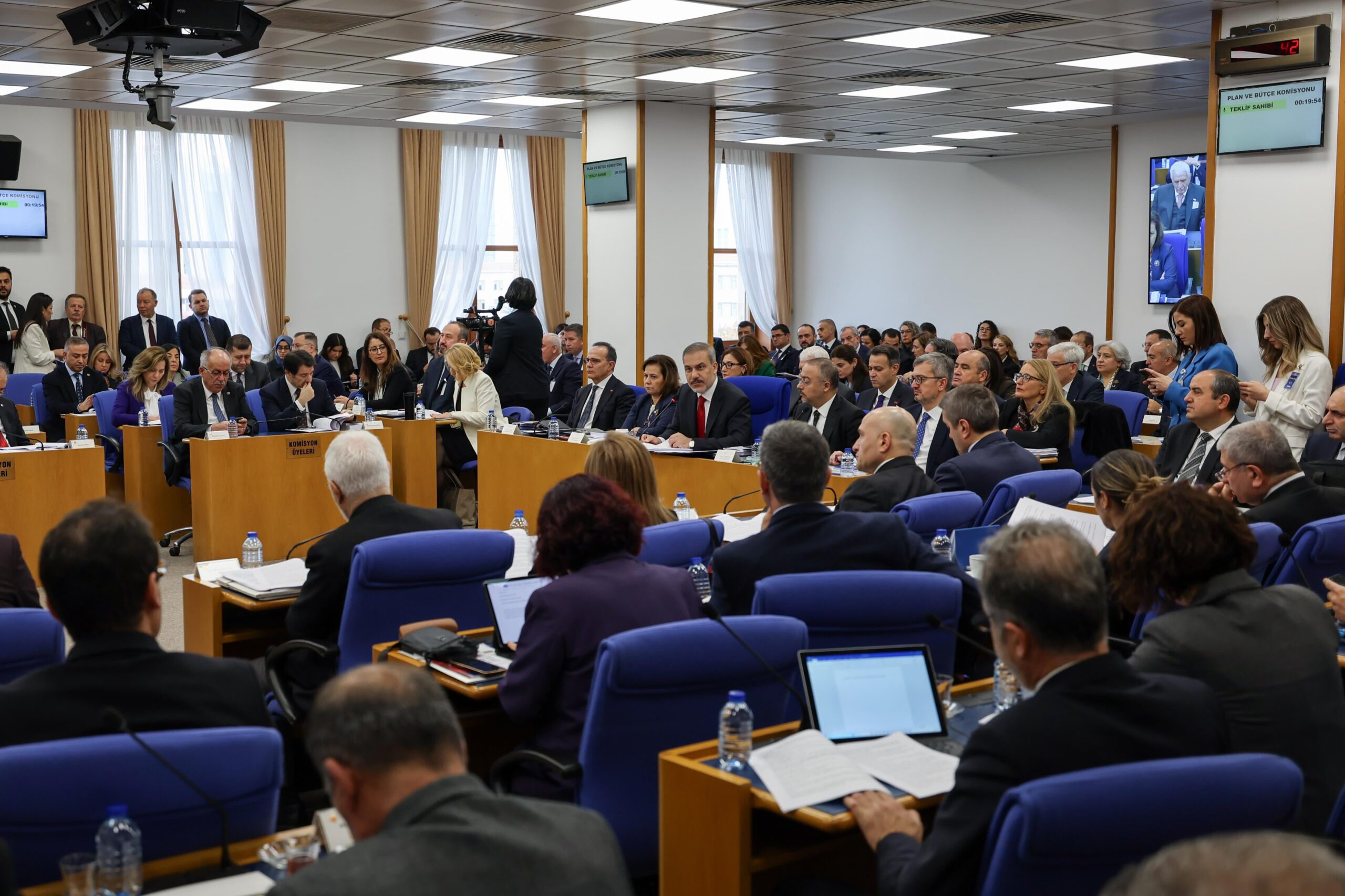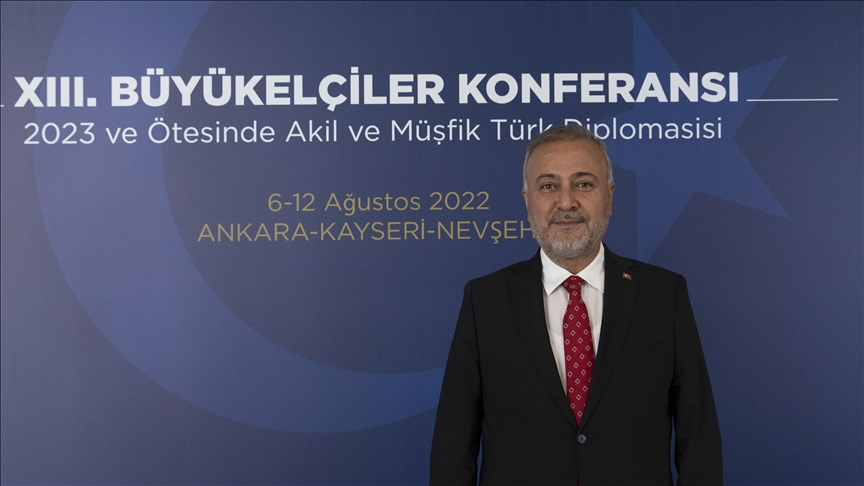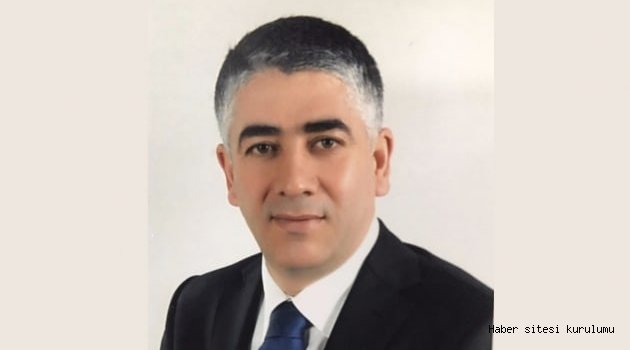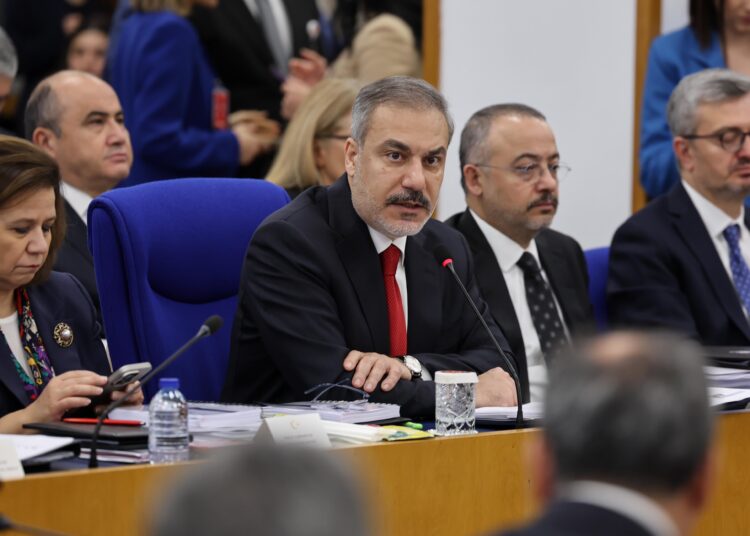Levent Kenez/Stockholm
Turkish Foreign Minister Hakan Fidan, on Nov. 21, 2024, responded to criticism voiced in Parliament during discussion of his ministry’s budget. The criticism centered on the appointment of senior officials to the Foreign Ministry from other institutions, particularly the National Intelligence Organization (MİT). Fidan explained that he had chosen this route due to a lack of qualified experts available within the ministry. He also revealed an ambassadorial appointment made from the ranks of MİT, which had previously been kept confidential.
Fidan, former head of MİT, who was appointed foreign minister by President Recep Tayyip Erdogan following the May 2023 elections, addressed claims about a large number of personnel from MİT accompanying him to the Foreign Ministry. Fidan stated that only six directors currently serving in the ministry were appointed from MİT.
The parliamentary transcript of Hakan Fidan’s speech regarding MİT appointments to the Foreign Ministry:
His statement confirmed that the following roles within the Foreign Ministry are now occupied by former MİT officials: director general of personnel, director general of legal services, director general of information technology, director general of intelligence and security, director general of foreign policy planning and coordination and director general of international security.
Fidan also noted that personnel with expertise in financial and support services as well as public administration had been brought in from other institutions. He explained that the Foreign Ministry lacked specialists in these areas and emphasized that assigning such tasks to individuals who specialize in diplomacy would not be appropriate. However, it is known that Fidan has also appointed other individuals who previously worked with him at MİT to senior positions within the Foreign Ministry.

Fidan appointed Kenan Yılmaz to be director general of intelligence and security. Yılmaz had served as ambassador to Tripoli between 2021 and 2024. When he was first appointed, there was no available information about his background, which led to suggestions from opposition lawmakers and the media that he might be a MİT official. Fidan has now confirmed for the first time that Yılmaz was indeed formerly MİT personnel.
Turkey has played an active role in supporting factions allied with the Libyan government through the provision of arms, training and military aid, with significant financial backing from Qatar. Turkey has also deployed Syrian fighters as mercenaries in Libya, offering them monthly wages and, reportedly, promises of Turkish citizenship for themselves and their families. These fighters, carefully selected by Turkey’s intelligence agency, MİT, have been integral to Turkey’s broader regional strategies, which trace back to MİT’s collaboration with anti-Assad factions in Syria. The appointment of a MİT officer as Turkey’s ambassador to Libya raises the possibility of facilitating smoother coordination of these ongoing efforts.
A new department has been created with the primary responsibility of coordinating between the Foreign Ministry, MİT and security agencies. By placing a former MİT official in this role, Fidan has further integrated the Foreign Ministry with intelligence operations, deepening its collaboration with national security and intelligence agencies.

Nordic Monitor previously reported that appointments within the Turkish Ministry of Foreign Affairs have raised concerns due to the selection of individuals with strong ties to Turkey’s intelligence agency.
Among the most notable figures is Nuh Yılmaz, the former press counselor and head of counterintelligence at MİT. Yılmaz, who is now a deputy minister, was appointed as the head of the Center for Strategic Research (SAM), a think tank within the ministry. This appointment is widely regarded as symbolic, underscoring his continued presence within Fidan’s inner circle. Yılmaz has a controversial history of managing operatives and informants in traditional and online Turkish media outlets, some of which were used to propagate conspiracy theories.
Another significant appointment was that of Ümit Ulvi Canik, a former legal counselor for MİT, who has been named head of the Directorate General of Legal Services at the Ministry of Foreign Affairs. Canik’s career has been marked by his involvement in the 2014 scandal surrounding the interception of a truck loaded with weapons and ammunition allegedly destined for al-Qaeda-linked groups in Syria. As MİT’s representative, Canik played a role in attempting to block the search of the truck and later represented MİT in high-profile legal cases.
Hacı Ali Özel, a former deputy to Fidan, has been assigned as director general of personnel at the ministry. His appointment highlights Fidan’s efforts to restructure the ministry by assembling a team aligned with his strategic goals. Since 2016, the Erdogan government has dismissed more than 30 percent of the ministry’s diplomatic staff, including over 700 career diplomats, many of whom faced unjust imprisonment. These positions have largely been filled by political appointees and loyalists lacking diplomatic backgrounds.
Gürsel Dönmez, another close associate of Fidan, was appointed Fidan’s chief advisor. Dönmez previously led the Austrian branch of the Union of International Democrats, a pro-Erdogan organization, and held a senior role in the Presidency of Turks Abroad and Related Communities. He is known for his active involvement with Turkish diaspora communities in Europe, a key recruitment channel for Turkish intelligence operations. In August 2024, Dönmez was appointed to be Turkey’s ambassador to Vienna.

Fidan, often seen as a potential successor to President Erdogan and a future leader of the ruling party, frequently makes statements designed to resonate with conservative and nationalist audiences. During his tenure as the head of MİT, Fidan built a mysterious and hardline image, bolstered by MİT-supported troll accounts on social media. As foreign minister, he appears intent on preserving this carefully crafted persona.
Under Erdoğan’s increasingly authoritarian rule, MİT has become a cornerstone of Turkey’s power structure. Erdogan appointed Fidan as foreign minister, a role of high prestige, but one that somewhat curtails his influence in comparison with the head of national intelligence. In a strategic move, Erdogan replaced Fidan at MİT with İbrahim Kalın, a close relative and trusted confidant.
The transfer of some of Fidan’s key allies within MİT to the Ministry of Foreign Affairs is seen as a proactive measure, as these figures were likely to be sidelined under Kalın’s leadership. Rather than remaining at MİT and risking marginalization as “Fidan loyalists,” they opted to join Fidan in his new role, ensuring their continued relevance and influence.












